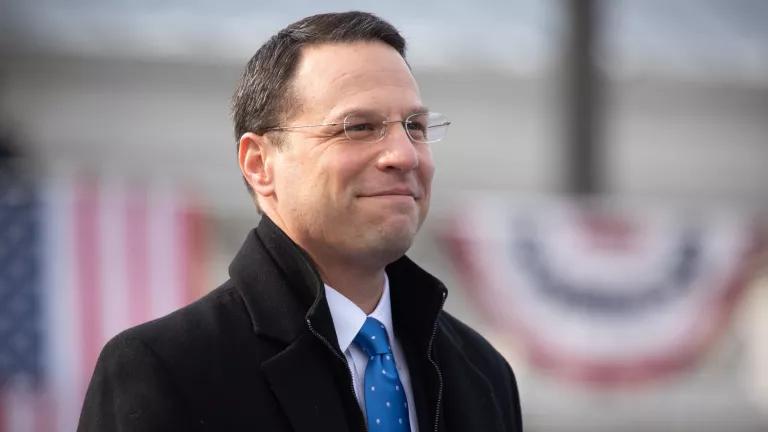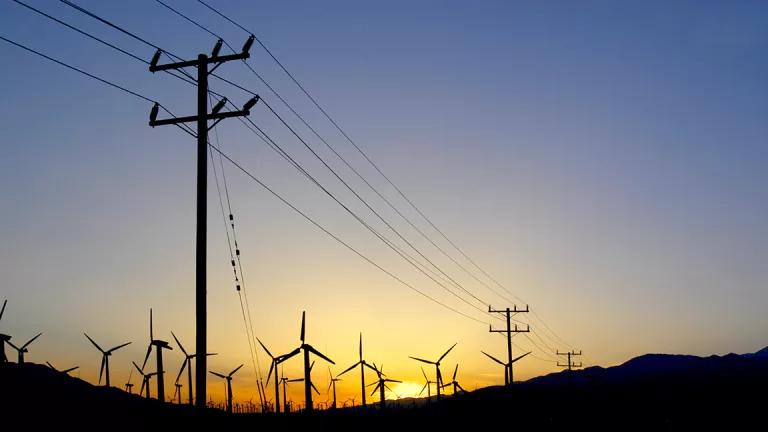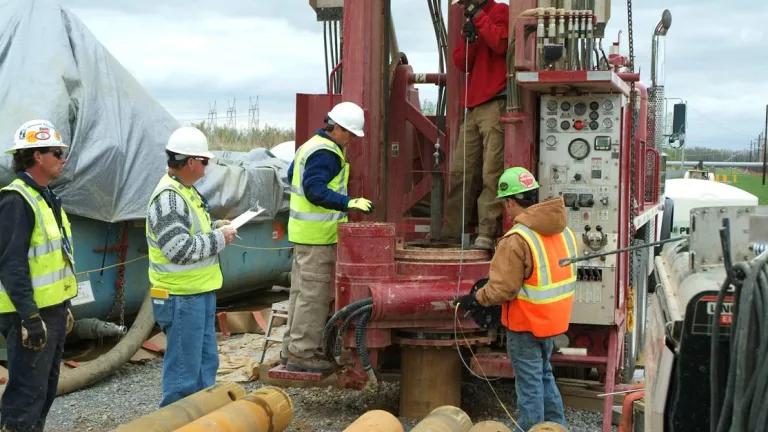RGGI in Pennsylvania: Updates and Looking Ahead to 2024
Recent developments establish a benchmark.

Pennsylvania State Capitol Complex in Harrisburg
Shutterstock
A couple months back, following the announcement that Governor Shapiro’s RGGI Working Group had met its charge and submitted a memo with recommendations on climate and energy policy consistent with the Governor’s three-part test, it seemed reasonable to ask, “now what?” At the time, I provided an overview of possible next steps and now have a few key updates to share before we close out 2023.
First, on November 1, PA Commonwealth Court issued orders and opinions in the lawsuits challenging the RGGI Regulation, voiding the program as an “invalid tax” and permanently enjoining agency enforcement. It was widely expected that the case would turn on the question of “tax vs. fee,” and the outcome before this panel of judges was not particularly surprising. The decisions tracked closely with the preliminary injunction opinions from July 2022 and offered little new analysis.
NRDC’s President and CEO Manish Bapna issued a statement calling the rulings “misguided” and urging Governor Shapiro to appeal so that the Supreme Court of Pennsylvania could have the final word on this critical question of executive authority. On November 21, the administration did indeed file a notice of appeal in both dockets. The Governor’s spokesperson also released a statement acknowledging the Governor “stands ready and willing to implement the recommendations of the RGGI Working Group” and calling on lawmakers in both parties to “join us at the productive table the Governor has set with labor, environmental advocates, energy producers, and consumer advocates,” rather than “take their ball and go home.” He concluded by making clear that inaction on commonsense energy policy is not acceptable.
Next Steps in Litigation
The two related appeals are now pending before the PA Supreme Court, and DEP raises the same question in both: are RGGI’s allowances actually fees (rather than taxes) imposed by the agency within the scope of its granted regulatory authority under the Air Pollution Control Act? In the case brought by Republican legislators, DEP also asks the Court to find that those members did not have standing to challenge RGGI after the regulation was published in April 2022 (Republicans had intervened in an existing lawsuit seeking to block that publication).
Eventually, the Justices will issue a scheduling order establishing a timeline for the parties to brief the issues and likely present oral argument sometime in 2024. And since my last blog, Pennsylvanians have elected a new Supreme Court Justice, Daniel McCaffery, to fill former Chief Justice Max Baer’s seat (who passed away last year). McCaffery will be sworn in next month, and the Court will have a full complement of seven Justices again.

Supreme Court of Pennsylvania
Shutterstock
One additional note - earlier this week, the Supreme Court ordered all parties in actions related to appeals of the July 2022 preliminary injunction to file supplemental briefs to address whether those appeals are now moot (the Court heard argument in May 2023 but has not issued any decision). Those briefs must be submitted in January.
Ball in the General Assembly's Court
Meanwhile, the Shapiro administration spoke plainly and directly to the legislature in Harrisburg - step up, be constructive partners, and act on the Working Group’s recommendations. The group’s co-chairs, NRDC’s Jackson Morris and retired IBEW leader, Michael Dunleavy, reiterated that call in a joint op-ed published last week. Unfortunately, Senate leadership responded in the immediate aftermath of the appeal announcement by rejecting the Governor’s outreach and declaring they will “not negotiate environmental and energy policy with the anvil of RGGI hanging over the heads of Pennsylvanians.” The recent op-ed called out this approach as “unacceptable” and urged legislators in both parties to seize this opportunity instead of “retreating to their corners.”
Whether or not cooler heads prevail in the Senate, for NRDC, it’s clear that RGGI participation is established as the benchmark. As a reminder, the Working Group reached historic consensus that “a form of cap-and-invest carbon regulation for the power sector that generates revenue to support the commonwealth’s energy transition is the optimal approach.” Whether that approach takes the form of an even broader regional cap-and-invest program or, alternatively, a program with a carbon market tailored strictly to Pennsylvania, NRDC would support additional policy pathways so long as they deliver benefits equal to or greater than what RGGI will bring.
That means climate benefits from hundreds of millions of tons in carbon pollution reductions, up to $6.3 billion in public health benefits from reductions in NOx and SO2 by 2030, and economic benefits resulting from a net increase of over 30,000 family-sustaining jobs by 2030. RGGI participation is also projected to secure nearly $1 billion in additional federal clean energy investments in Pennsylvania, all while lowering energy costs across the state.
Auction News
Earlier this month, the most recent quarterly RGGI auction saw a strong clearing price of $14.88 per allowance. That matched the program’s 2023 cost containment reserve (CCR) trigger, which led to RGGI Inc. supplying additional allowances into the market to stabilize at that price. Given the likely number that DEP would have made available for sale (if not for the injunction), Pennsylvania lost over $226 million in proceeds from this auction alone. Updating the running total from my last blog, that’s now over $1.67 billion in foregone proceeds caused by legislative and legal delays during the past two years. The total cumulative auction proceeds among the 11 other RGGI participating states since 2009 is now nearly $7.2 billion; each state has chosen to invest its proceeds in different ways to further cut air pollution, grow their clean energy workforces, and cut utility bills for their residents.
These are opportunities that would benefit all Pennsylvanians. And despite an unclear path forward in a divided legislature, NRDC is hopeful that 2024 will be the year the Commonwealth begins sharing in those benefits.



